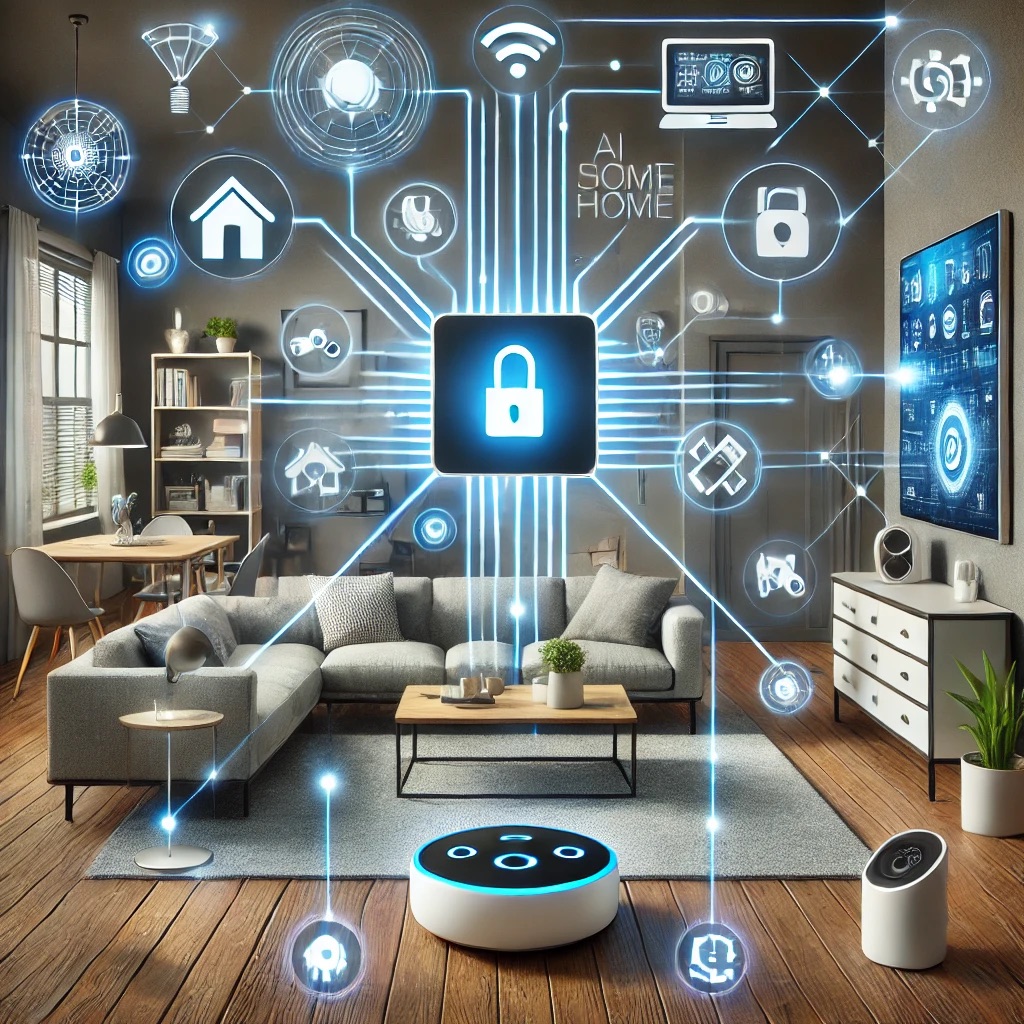A few decades ago, the idea of talking to your house and having it respond intelligently seemed like science fiction. Today, it’s a reality. From smart assistants that control lighting and security to AI-powered appliances that learn your habits, artificial intelligence is revolutionizing the way we live at home.
This shift towards AI-driven smart homes isn’t just about convenience—it’s about efficiency, security, and personalization. In this post, we’ll explore how AI is transforming our living spaces, making our homes smarter, more responsive, and even more intuitive than ever before.
The Smart Assistant Revolution
One of the most visible impacts of AI in our homes is the rise of smart assistants like Amazon Alexa, Google Assistant, and Apple’s Siri. These AI-powered voice assistants have become central hubs for smart home control, allowing us to:
• Adjust thermostats and lighting with a simple command
• Play music and control entertainment systems
• Manage schedules, set reminders, and provide weather updates
• Even order groceries or control appliances hands-free
The secret behind their effectiveness is natural language processing (NLP), which enables these assistants to understand and respond to human speech more naturally than ever before. And thanks to machine learning, they improve over time—learning your preferences, routines, and even accents to become more intuitive.
Smart Security: AI-Powered Protection
Home security has undergone a massive transformation with AI. Traditional security systems relied on alarms and basic cameras, but AI has introduced a new level of intelligence.
Modern AI-powered security cameras don’t just record footage—they analyze it in real-time to detect unusual activity. Features like:
• Facial recognition to differentiate between family members and strangers
• Object detection to recognize packages or intruders
• Automated alerts that notify homeowners about suspicious activity instantly
These advancements reduce false alarms and improve response times, making home security more proactive than reactive. Companies like Ring, Nest, and Alarm.com are leading this charge, integrating AI to offer smarter, more effective security solutions.
Energy Efficiency and Smart Climate Control
AI isn’t just making homes smarter—it’s making them more energy-efficient. Smart thermostats like Nest Learning Thermostat and Ecobee use AI to analyze your habits and optimize temperature settings accordingly.
This means:
• Lower energy bills by reducing unnecessary heating/cooling
• Comfort optimization by adjusting the climate based on occupancy
• Integration with weather forecasts for more intelligent temperature control
Some AI systems even learn when you typically leave for work or when you come home and adjust the climate accordingly—ensuring you never waste energy heating or cooling an empty house.
AI in Home Automation: Learning Your Routines
Beyond security and climate control, AI is making home automation more seamless than ever. Smart home hubs like Samsung SmartThings and Apple HomeKit connect all devices in your house, allowing for deep automation.
Imagine a home that:
• Turns off all lights and locks doors automatically when you go to bed
• Starts the coffee maker and opens the blinds when you wake up
• Detects when you’re arriving home and adjusts the lights, temperature, and even plays your favorite playlist
This is the power of predictive automation—where AI doesn’t just respond to commands, but anticipates your needs.
AI and Home Entertainment: Smarter, Personalized Experiences
Entertainment has also been revolutionized by AI. Streaming platforms like Netflix, Spotify, and YouTube use AI-driven recommendation engines to suggest content tailored to your preferences.
AI analyzes factors like:
• Your past viewing/listening history
• Similar users’ preferences
• Contextual data (time of day, mood-based playlists)
This means your TV and music services learn what you like—so you spend less time searching and more time enjoying.
Even gaming is evolving with AI. AI-driven NPCs (non-playable characters) in video games are becoming smarter, adapting to players’ actions in real time, creating more dynamic and immersive experiences.
What’s Next for AI in Smart Homes?
We’re only scratching the surface of what AI can do in our homes. Future advancements could include:
• AI-powered robotic assistants that clean, cook, or run errands
• Predictive maintenance—your home notifying you when appliances need repairs before they break
• Fully autonomous homes that manage themselves based on your lifestyle
The ultimate vision is a home that’s not just smart—but intelligent, adapting to its occupants and making everyday life effortless.
Key Takeaways
✅ AI-powered smart homes are improving security, energy efficiency, and convenience.
✅ Smart assistants like Alexa and Google Assistant act as central hubs for automation.
✅ AI-driven security systems offer facial recognition, object detection, and instant alerts.
✅ Smart thermostats optimize energy use based on your habits.
✅ Home automation is shifting from command-based to predictive AI, where your home anticipates your needs.
✅ AI-driven entertainment is personalizing content like never before.
The smart home of the future is already here—it’s just getting smarter.
In the next post, we’ll explore the ethical challenges AI presents as it continues to integrate into our lives. Stay tuned!
